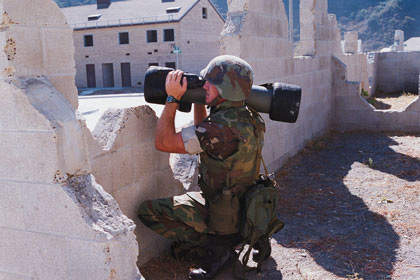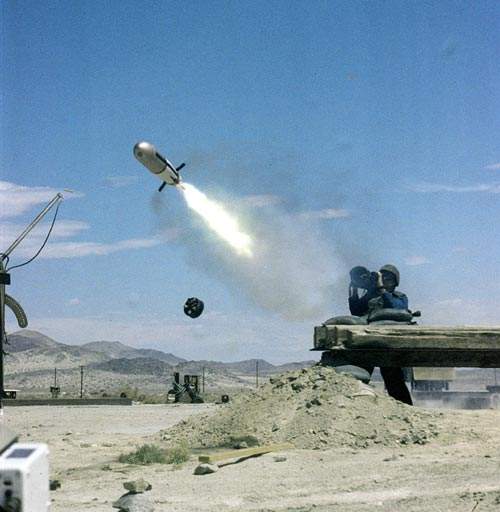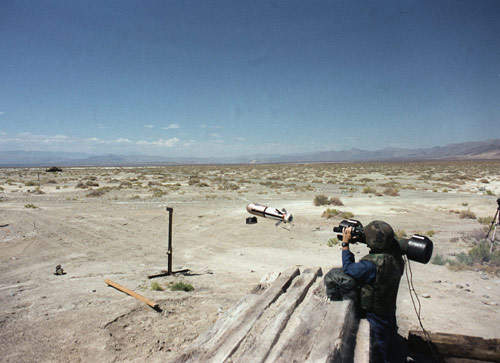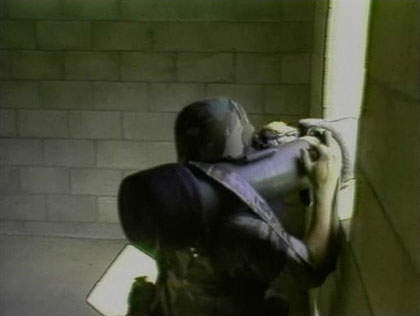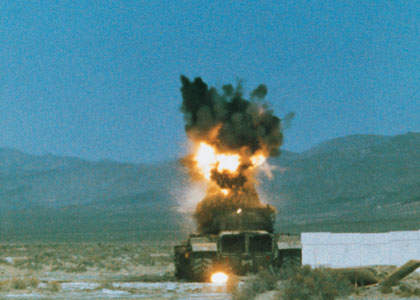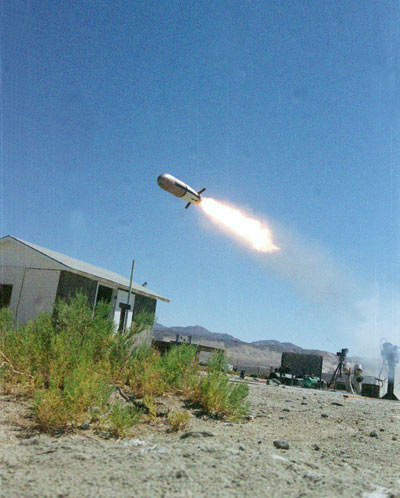The Predator lightweight close-range anti-tank missile system.
The Lockheed Martin Predator is a lightweight close-range anti-tank missile system which complements the Javelin anti-tank missile. The shoulder-mounted fire and forget missile weighs less than 10kg. Predator has a longer range and higher lethality than the AT4 and other systems it is designed to replace.
The missile is normally used in top attack mode, using a top attack trajectory and laser and magnetic proximity sensors to fire the warhead directly onto the vulnerable top of the tank where the armour is weakest. The explosively formed penetrator warhead is made by Aerojet and is developed from that used on the Raytheon TOW 2B missile. The warhead can penetrate explosive reactive armour (ERA).
The fire-and-forget capability allows the soldier to ‘shoot and scoot’ i.e. to fire and immediately relocate to a new position while the missile is in flight.
Predator anti-tank missile system development
In February 2002, the United States Marine Corps signed a contract with Lockheed Martin for the low-rate initial production (LRIP) of 330 Predator systems. A second LRIP contract for 400 systems was signed in January 2003. In October 2003, the USMC announced a decision to cancel production of the system following completion of the LRIP systems. In December 2003, the system successfully completed first article and lot 1 testing with the USMC at the Naval Air Warfare Center, China Lake, California.
In June 2004, the USMC requested Lockheed Martin to retrofit Predator systems with a multi-purpose variant (MPV) blast fragmentation warhead, which converts the system into a direct attack urban assault weapon, effective against buildings and bunkers. This was in response to requirements identified during Operation Iraqi Freedom.
Predator missile system operation
Predator is quick, effective and simple to use. The gunner points and shoots the weapon in the same way as firing a rifle.
For urban operations a soft-launch capability allows the gunner to take cover in buildings and structures while tracking a target. The soft launch motor expels the missile from the launch tube. When the missile has travelled about 5m from the launch tube, the flight motor is ignited and propels the missile towards the target at a speed of 250m a second.
To fire the missile the soldier mounts the weapon on his shoulder, tracks the centre-of-mass of the target through an optical sight and fires.
During the prelaunch, the system’s autopilot measures the target’s position and movement. The missile is fitted with a low-cost inertial guidance system which provides high accuracy against both mobile and stationary targets.
During the missile flight, the autopilot maintains the predicted trajectory with compensation for target motion and for trajectory disturbances such as crosswind. The missile’s flight path overflies the target aim point. The dual laser and magnetic sensor detects the target and triggers the detonation of the warhead. The laser sensor locates the positions of the leading and trailing edges of the tank, and the magnetic sensor provides confirmation of the position of the tank. The explosively formed penetrator (EFP) warhead is directed downwards through the armour on the top of the tank.
The dual-mode target detection system is extremely robust against battlefield countermeasures deployed to jam a missile’s guidance system.
Short-range assault weapon – multi-purpose variant (SRAW-MPV)
The missile has been renamed the short-range assault weapon – multi-purpose variant (SRAW-MPV). 700 rounds were retrofitted with the new warhead. Lockheed Martin completed delivery of the first 400 rounds in May 2005. The system was tested by the USMC but there are no current plans for its production.
Kestrel next-generation light anti-armour weapon (NLAW)
Team Kestrel, consisting of Lockheed Martin, MBDA and Insys, proposed Kestrel, a derivative of Predator, for the UK next-generation light anti-armour weapon (NLAW) requirement. In 2000, the UK Ministry of Defence carried out a series of trials to evaluate Kestrel for the UK NLAW requirement. 13 Kestrels were successfully fired against simulated tanks at ranges up to 600 metres. In May 2002, MBT-LAW, led by Saab Bofors Dynamics was chosen for the NLAW requirement.
The Kestrel also incorporated a direct attack capability for operation against bunkers and other fortified enclosures. In the direct attack mode the missile flies a line-of-sight trajectory to the target and the warhead detonates on impact. The warhead defeats both conventional and reactive armour.

